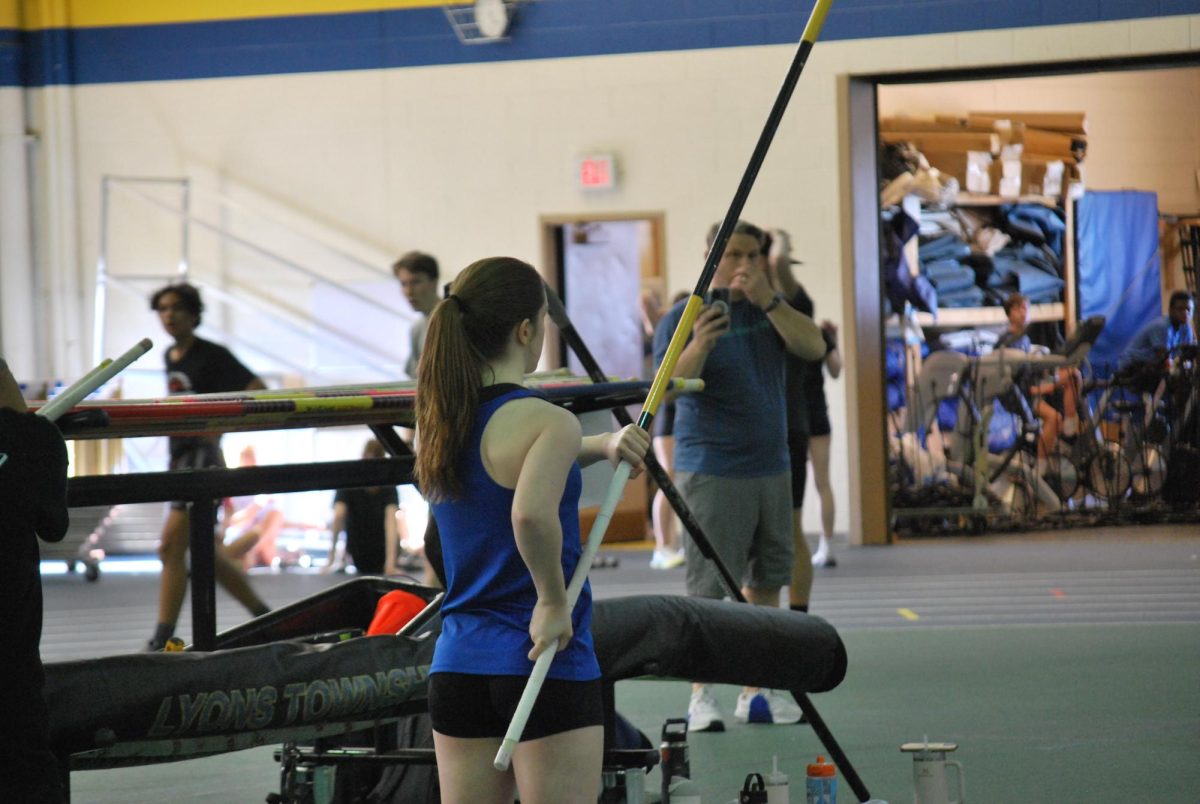Loosen up tech policies
October 27, 2015
In our society, technology is constantly on the rise, especially in education. Seventy-three percent of Advanced Placement and National Writing Project teachers said that their students use cell phones in the classroom or to complete assignments, according to a Pew Research Center study. So, why is LT behind in this aspect? LT should loosen up on their technology policy, specifically regarding handheld devices such as cell phones.
Handheld devices should be permitted in school due to the accessibility they offer through school-sponsored applications. For example, there are apps for the LTHS Website, Infinite Campus, Outlook, Canvas, Naviance and most importantly, LION Newspaper. Numerous teachers post assignments and class schedules on Canvas or to their teacher webpages on the LTHS website. Students would be able to access these assignments easily with a more relaxed policy. Teachers would be able to update students throughout the day if students were able to access Outlook on their phones during school. Students could check their grades or read a story during the lunch study hall if the cell phone policy allowed them to do so.
Some students need to make after-school arrangements during school. It is easy for these students to contact a parent or friend with their cell phones. Students who do not drive themselves to school usually need to ask for a ride home from school and arrange a place and time to meet with their driver. Students also may need to be reminded of a club meeting or sports event. Their peers can text them this information or their club sponsors or coaches can email it to them.
Students do not have to read these messages during class. They would be able to check emails and texts during passing periods, study halls, or lunch. However, accessing social media sites and personal email on cell phones is only permitted before and after school, according to the Technology Guidelines of the LT Student Handbook.
In emergencies, cell phones and other communication devices can prove to be vital. For example, if there was a fire at the school, students would need to be able to notify their parents to communicate that they are okay. Or if a student was missing during a hypothetical emergency, the student’s phone would be able to be located with GPS programs. Therefore, students need to have their cell phones on them during school in case there is a crisis.
Numerous teachers have their own cell phone policy. Spanish teacher JoEllen Gregie, for example, instructs her students to access Canvas via cell phone during class when necessary. She also allows students to take a picture of the homework assignment instead of writing it down. Many teachers have the same relaxed opinion as Gregie on cell phone usage during school.
Cell phones and other handheld devices should be permitted during school hours because they allow easy accessibility to school-sponsored applications, they are useful in emergency situations and they help students communicate with teachers, parents, and peers when necessary.


















![Movie poster for [Rec] (2007).](https://www.lionnewspaper.com/wp-content/uploads/2023/04/rec-640x900.jpg)


